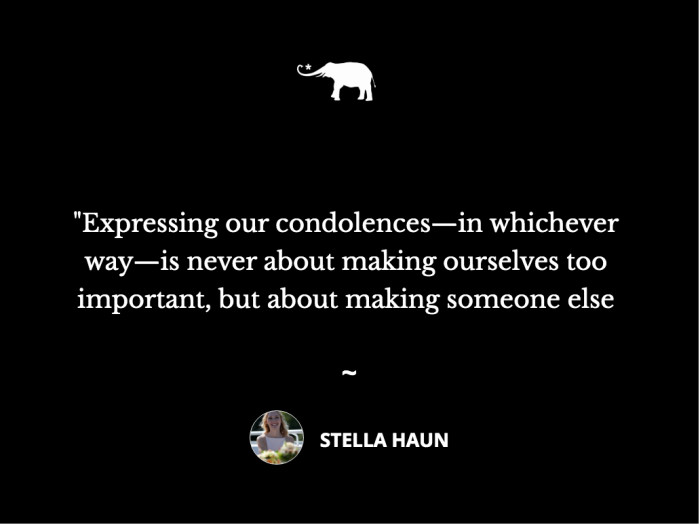When I lost my dad about two years ago, he wasn’t the first loss I experienced.
But it was the first time that I was, together with my mum and my sister, in the center of this loss.
After word of his passing had spread (and especially after the funeral had passed), a sheer, unbelievable amount of condolence cards arrived at my mother’s house. I have read every one of them—not once, but several times.
They were written by well-familiar friends of his and our family, acquaintances, colleagues, employees, and neighbors. There was a not small number of cards and letters from people that we either didn’t expect, or from whose names we had never even heard of before.
We received beautiful thoughts, memories, poems, and personal stories that each were things people connected with my beloved dad or that were meant to provide us with comfort in some way.
My favorite ones—and the most comforting ones—were all the ones that shared the memories that people had collected with him.
Like adding pieces to the puzzle of his life, they let us be part of things we didn’t even know about and brought others back into our awareness.
Then there were those condolences that came from people who didn’t even know him, but who knew, appreciated, or loved one of us, and wanted to make sure that we were seen and held in our grief.
Among everyone who reached out, naturally, the overwhelming majority were people my parents’ age or older and just a few were people of my or my sister’s generation. It struck me that of those younger ones, almost everyone had been part of my life then or had experienced earlier the loss of a loved one themselves; in some of those cases, I had been there to hold them through their grief.
More than a year into my grieving (it tends to occupy your life), I saw the stack of cards at my mum’s place, when I remembered that observation I had made long before. Then and now, it seems so clear to me that those who felt compelled to write were those who had experienced loss themselves and who had maybe felt the comforting power of a small card.
For obvious reasons, the older we get, the more likely it is that we have lost, and the more aware we are of how much comfort a gesture like this can hold. I used to think of it (not much at all to be honest) as something “one does” in the sense of appropriate social behaviour.
I now understand that it is likely most often the deep wish to extend comfort to somebody in what are times of unbearable pain.
A little while ago, my aunt was visiting me when a young boy from our village passed away suddenly. I didn’t know him at all, but she mentioned that she had met him once during a day trip to a football match some years ago. She said he appeared to be such a kind and joyful boy and that she probably had some pictures of him from that day. I naturally suggested she write a card to his parents with the pictures attached, and her immediate response was, “I don’t even know them,” and “I only met him once.”
This was when I realized that there were reasons that people refrained from expressing their condolences—simply because they felt that theirs wouldn’t matter to the ones grieving.
Sending these three pictures to his family and reminding them of a joy-filled day in their son’s life let them in on a memory that they were not originally part of. It added one more piece to the puzzle of this young man’s life because my aunt accepted the fact that it might matter.
Expressing our condolences—in whichever way—is never about making ourselves too important, but about making someone else (feel) important.
Write those cards. It might seem like the littlest thing, but it has the potential to hold someone else in a way you can only understand when you have been there.
Each one matters so that they know they matter(ed).
I feel the same is true about letting people know right now that they matter and that we see their suffering.
Just let them know.
~


 Share on bsky
Share on bsky






Read 0 comments and reply